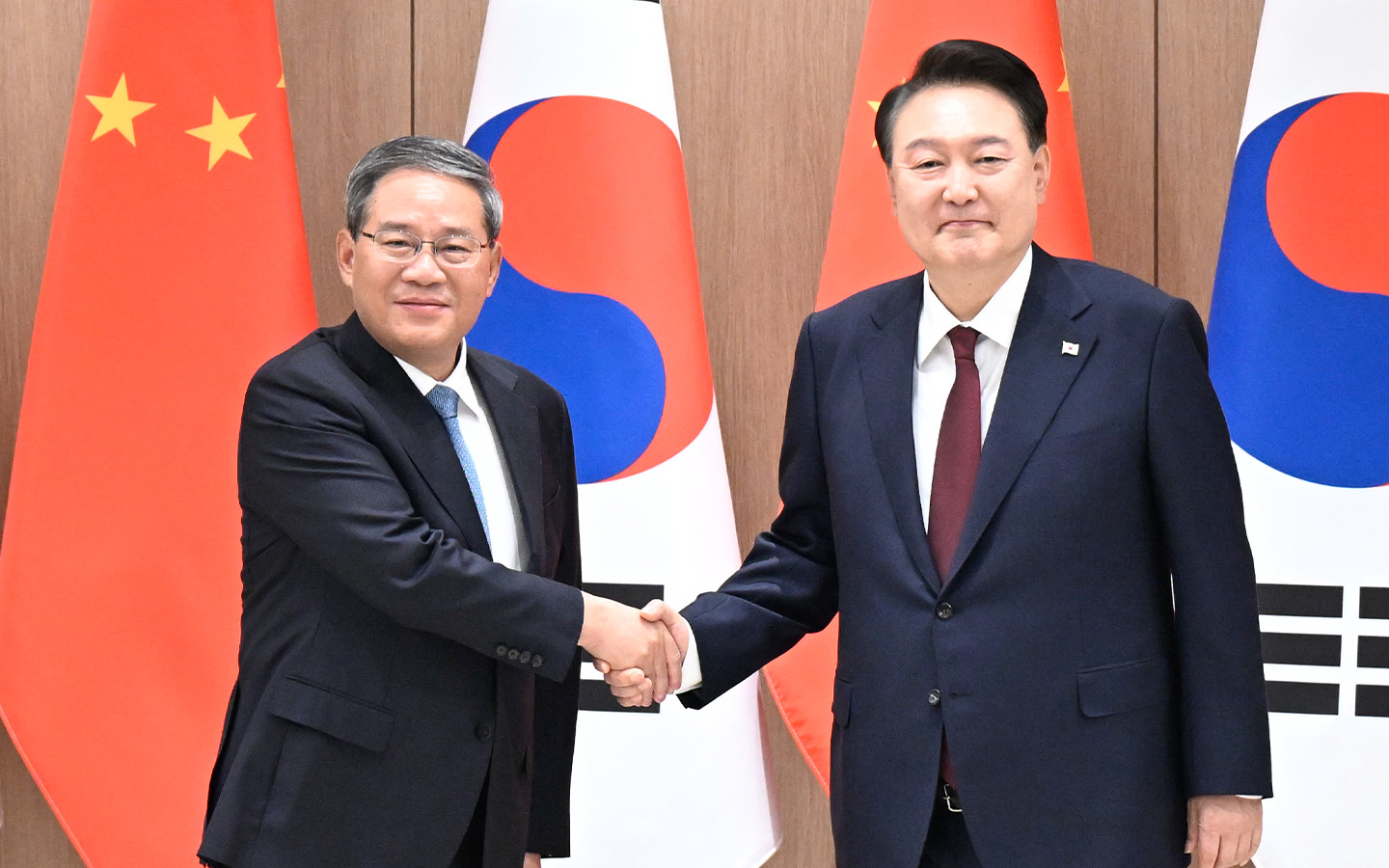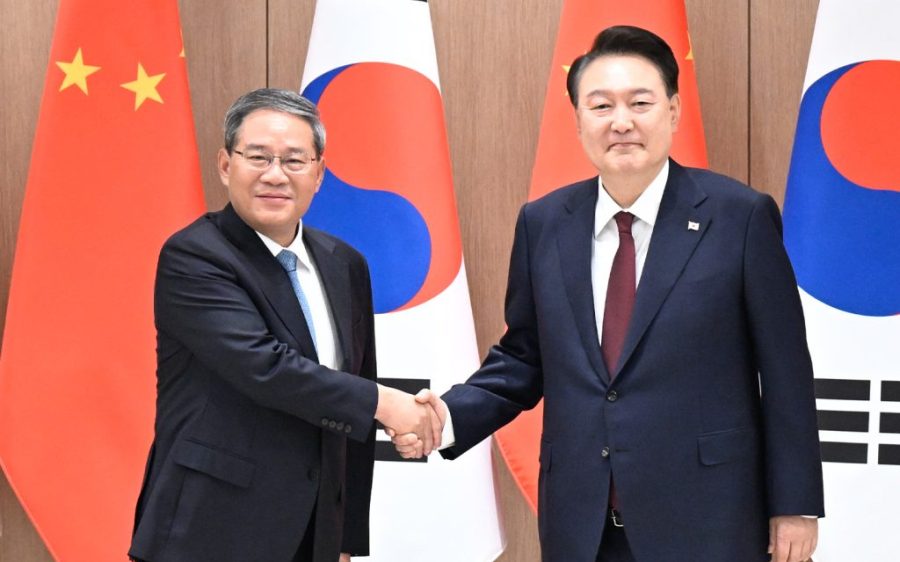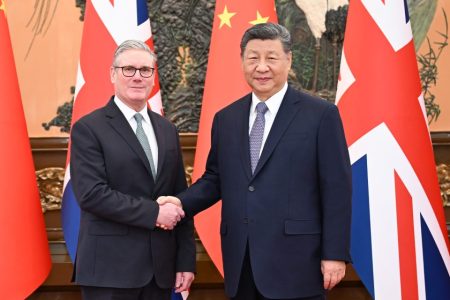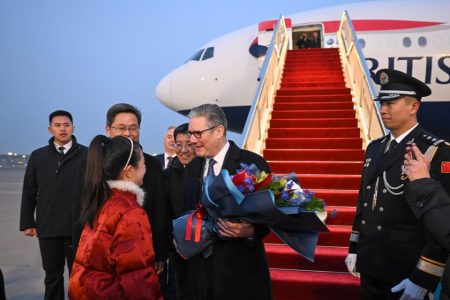On Sunday, Premier Li Qiang of China and South Korea’s President Yoon Suk Yeol agreed to resume free trade talks and launch a diplomatic and security dialogue, Reuters reports. Li met Yoon in Seoul ahead of the first three-way summit between leaders of China, South Korea and Japan in four years, which is set to take place today.
Li reportedly told Yoon that their respective nations should stop turning economic and trade issues into political or security ones, and focus on maintaining stable supply chains. China was ready to cooperate further with South Korea in sectors including high-end manufacturing, new energy, artificial intelligence and biomedicine, he said.
Li also met with Prime Minister Fumio Kishida of Japan on Sunday. Kishida requested that China lift its embargo on Japanese seafood (imposed in response to Japan’s release of water from the ruined Fukushima nuclear power plant last August). Li, meanwhile, said that he hoped Japan would “properly handle issues like Taiwan.”
Beijing has criticised both Japanese and South Korean lawmakers for attending a ceremony held last week to mark the assumption of office by the island’s new leader William Lai – considered a separatist by China’s leaders.
[See more: Putin and Xi reaffirm ties and condemn Washington’s ‘cold war mentality’]
Both Seoul and Tokyo have sided with Washington in its attempts to use Taiwan as a flashpoint in the West’s geopolitical rivalry with Beijing, and their ongoing alliance with the US has made relations with China difficult.
The chances of concrete outcomes stemming from today’s summit are reportedly low, though officials and members of the diplomatic community in Seoul and Tokyo told Reuters that even handshakes would be meaningful progress given the currently tense state of affairs.
Last week, China’s ministry of foreign affairs spokesman Wang Wenbin said that Beijing hoped the summit would “inject new impetus into the trilateral cooperation and provide better ways towards mutual benefit for the three countries.”
According to Yoon’s office, economics and trade, climate change, cultural exchanges, health and ageing populations, science, and disaster responses were on the summit’s agenda.






